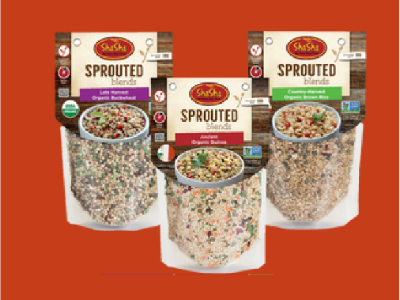How to Reduce ADHD Symptoms by Eating Right
 Attention Deficit Hyperactivity Disorder (ADHD) is a phenomenon that usually begins in early childhood and continues into adulthood. It results in a reduced ability to pay attention for extended periods of time. The condition can be accompanied by a heightened energy level that can cause social, academic and emotional problems.
Attention Deficit Hyperactivity Disorder (ADHD) is a phenomenon that usually begins in early childhood and continues into adulthood. It results in a reduced ability to pay attention for extended periods of time. The condition can be accompanied by a heightened energy level that can cause social, academic and emotional problems.
The Restrictive diet
Many parents are finding that diet plays an enormous role in reducing the symptoms of ADHD. A Dutch study published in The Lancet, found that 78% of children who followed the restricted elimination diet displayed fewer ADHD symptoms. Researcher Lidy Pelsser, PhD, of the ADHD Research Centre in Eindhoven had this to say about the results; ”Not only ADHD, but also ODD symptoms, characterized by stubbornness, temper tantrums, and provocative behavior, which were present in 50% of the children, decreased significantly.”
Foods to avoid
The restrictive diet contains no refined sugars or processed foods, no soda or candy, no foods with artificial coloring or additives, no fired foods or junk foods of any kind. Focus was on whole foods and organic fruits and vegetables. Fruit juices were also avoided as the sugar content was too high. Foods that contain caffeine, refined sugar and white flour are thought to be the biggest culprits in increasing ADHD symptoms.
Foods to feed an ADHD family member
There are many foods that work to reduce the symptoms of ADHD.
Omega-3 Fatty Acids: These fatty acids help the brain to grow and function optimally. Omega-3 helps build healthy brain cells and regulates the production of neurotransmitter chemicals in the brain. It’s these chemicals that control behavior and mood. Omega-3 can be found in salmon, tuna, sardines and herring, eggs and flax seed.
Vitamin C: This increases the production of anti-stress hormones in the brain and helps to keep your mood stable. It also reduces the prevalence of sleep disorders. Vitamin C is a strong anti-oxidant. Anti-oxidants attach themselves to free-radicals, neutralizing their ability to destroy brain cells.
B Vitamins: This important group of vitamins is essential in keeping your brain healthy. B-5 produces tranquilizing chemicals that reduce hyperactivity and behavioral issues associated with ADHD. You can find a ready supply of B-5 vitamins in mushrooms, whole-wheat products, pork, beef, eggs and legumes.
Vitamin B-3 (also known as niacin) improves circulation to your brain which helps to deliver vital nutrients that support cognition, memory and social responses. Potatoes, tomatoes and eggs are good sources of B-3.

Vitamin B-12 helps to maintain the health of nerve endings in the brain and can be found in fish, poultry, pork, beef, dairy products and eggs.
Every person is different and the degree to which diet plays a factor in reducing ADHD symptoms may vary. You may also find that introducing some foods or cutting out others has no effect at all. In the restrictive diet study, Professor Pelsser found the best way to proceed was to cut one food at a time and monitor changes in behaviour. Sugar and processed foods have been shown to have a negative effect on childhood behaviour in other studies unrelated to ADHD. Cutting out junk foods and snacks will definitely have a positive effect on health and behaviour at any age.












